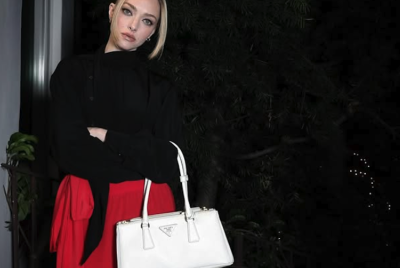Meghan Markle Faces £8m Lawsuit After US Woman Claims Duchess's Product Caused Burns and Ulcers
A woman is considering suing Meghan Markle after burns from homemade bath salts she saw in the Duchess's show

Meghan Markle is facing fresh legal trouble after a woman in the United States filed an £8 million lawsuit, claiming a product linked to the Duchess left her with burns and ulcers.
The allegations have sparked a media frenzy, marking yet another dramatic turn in Meghan's post-royal journey—and raising serious questions about product safety and celebrity branding. Where does the line lie with regards to media productions and public figures' responsibilities to the public?
The Allegation
Robin Patrick, a diabetic from Maryland, states she followed a recipe for bath salts that appeared on Meghan Markle's Netflix show, With Love, Meghan. The recipe included Epsom salt, Himalayan salt, arnica oil, and lavender oil, with no clear warning about potential risks. Ms Patrick claims that after dissolving the salts in her bath, she decided to try it out for herself. While she initially only felt a tingling without discomfort, after some time she began to feel a sudden burning sensation in her legs and buttocks.
She describes experiencing 'catastrophic burns' and still suffers from ulcers on her lower body. 'The burns are still not healed and are quite uncomfortable,' she told Radar Online. 'Since the incident, I have endured persistent burning, discomfort, and the emergence of new blister-like sores and ulcers daily.' Her injuries have disrupted her daily routine, making it difficult to shower or wear clothing over the affected areas.
The Warning and Legal Threat
Ms Patrick argues that Meghan failed in her 'duty of care' by not providing an adequate warning about the risks of using the salts, especially for diabetics. She believes the show should have included a warning similar to those on nut allergy labels. 'I watched Meghan making bath salts to leave in her make-up artist's room,' she explained. 'I copied her ingredients and tried it myself, and the results were devastating.'
She is seeking a minimum of £55,000 (around $75,000) to cover her medical bills, alongside a demand for £7.6 million (roughly $10 million) for what she describes as 'reckless disregard for public safety.' Patrick has expressed willingness to settle out of court if a suitable financial arrangement can be agreed.
The Defence
In response, Meghan's legal team has dismissed the claims, emphasising that Epsom salts are usually contraindicated in diabetics unless used under medical advice. Cameron Stracher, representing the duchess, argued that the injury was not foreseeable. 'The use of Epsom salts is contraindicated for individuals with diabetes except on the advice of a physician,' he wrote in a letter dated 22 April 2024. 'It was not foreseeable that Ms Patrick would disregard the packaging instructions in attempting to make her own bath salts.'
He further asserted that no negligence could be attributed to Meghan or the production team, as they provided no specific warnings about the risks of the ingredients. The case hinges on whether the show had a duty to warn viewers about potential dangers, particularly for those with underlying health conditions.
What Does This Mean Moving Forward?
This incident raises questions about the safety of celebrity DIY recipes broadcast on popular platforms. While Meghan's show aimed to share personal tips, critics argue that some recipes might not be suitable for all viewers, especially those with health issues. The controversy highlights the importance of clear guidance and warnings when sharing health-related content.
Ms Patrick's case is still ongoing, but it underscores the potential risks of DIY treatments promoted without detailed safety advice. If successful, it could set a precedent for how caution is communicated in celebrity-led content involving health and wellness. As the legal battle unfolds, it serves as a reminder that even seemingly simple recipes can carry serious health implications.
© Copyright IBTimes 2025. All rights reserved.





















